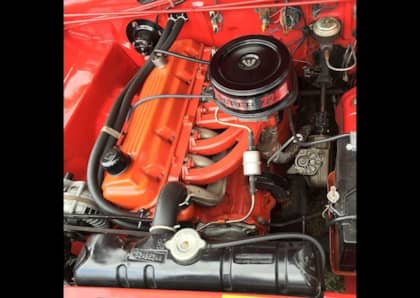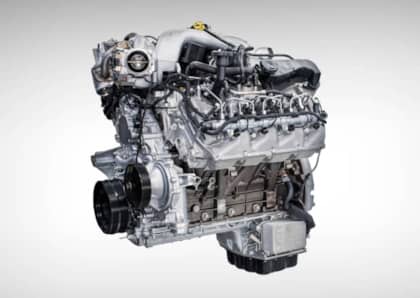6 Places You'd Never Expect to Find an LS Swap
The LS series engine traces its lineage back to the “Turbo-Fire” Chevrolet small-block V8 engines first introduced in 1955. The development of the new engine began in 1952 when Chevrolet’s chief engineer, Ed Cole, was tasked to create a high output alternative for the aging “Stovebolt Six” family engines to invigorate the early Corvettes. The fruit of their labor was a 265-cubic-inch pushrod V8 that would spawn the entire family of Chevrolet small-block engines.

This family of engines became extremely popular for engine swaps due to its inherent characteristics. The 350-cubic-inch iteration of this engine was installed by GM in pretty much every car and truck of this era; used parts and whole engines were plentiful... and cheap. The SBC V8, with its pushrod valve train, has less moving parts compared to overhead cams V8, resulting in superb reliability and a compact form factor. Due to the inherent strength of the production short block, the SBC can also reliably support a substantial amount of power with a few bolt-on items.

The LS series engines are the third iteration of the GM small block engine. They inherited the favorable traits of the SBC in addition to many modern improvements. With the comprehensive adoption of the aluminum block for non-truck application, the LS engines are exceptionally light for their displacement; most people would be surprised by the fact that a 6.2L LS3 weighs in within 30 pounds of the 2.0L FA20 from the BRZ/GT86 or a flat-6 from an air-cooled 911.
The move to a distributor-less ignition and an ECU-controlled fuel injection may seem like an added complexity, but the reality is that tuning carburetors and point ignitions are more witchcraft than science to most people. One can easily find an off the shelf ECU with drivability and mileage comparable to a properly tuned Carburetor. Properly tuned, an electronic fuel injection system can provide optimal power delivery in any driving condition.
Typing "LS swap" into Google reveals that, like an infectious disease, no car is safe from the LS swap, from classic Camaros to VW buses and modern Ferraris — if the car has an engine bay, someone, somewhere has dropped an LS engine into it.
But what about things other than cars? Continue reading to find what other deranged LS-powered contraption exists in the world.
1. Airplane
For the owners of smaller and older propeller planes, the cost of finding parts and maintaining an antiquated engine could be monumental. But fear not, the LS engine is always an alternative.


2. Helicopter
Another airborne LS-powered creation, this time, in a helicopter.


3. Lawnmower
Tubed frame, push-rod suspension and pedal shifters... mowing your lawn at 134 mph.


4. Boat


5. Blender
Jeremy Clarkson, head hooligan of the Top Gear trio, is well known for his affinity towards hammers, but when it comes to blending smoothies, there’s no replacement for displacement.
(Video: BBC America, Top Gear)
6. Rocking Chair
Another creation of the old Top Gear team — instead of meat and vegetables, this time they are blending limbs and organs.
(Video: BBC America, Top Gear)







